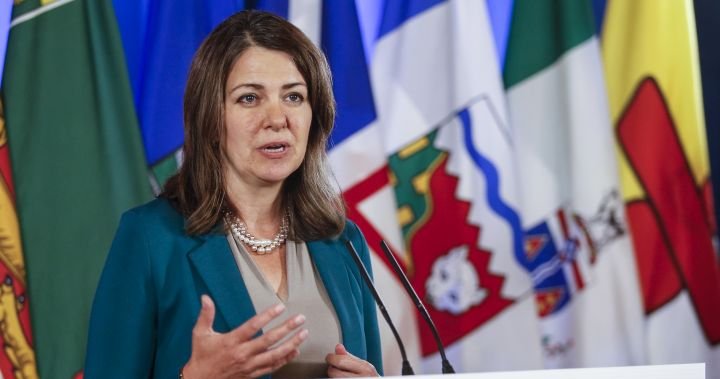Alberta Premier Danielle Smith expressed her dissatisfaction with the federal government’s handling of Indigenous health care, stating that they are failing Indigenous communities in urban environments and in addressing the mental health and addiction crisis. Smith made these comments at the annual premiers’ conference, where she highlighted the federal government’s tendency to intervene in provincial jurisdictions while failing to effectively address their own responsibilities.
In response, Federal Minister of Indigenous Services Patty Hajdu accused Smith and federal Conservative Leader Pierre Poilievre of politicizing the mental health of Indigenous communities, describing it as a “new low.” Hajdu emphasized that the federal government is making significant investments in culturally appropriate mental health and addictions services for Indigenous communities.
This debate comes in the wake of a state of emergency being declared by Treaty 6 First Nations due to rising opioid deaths. The Confederacy of Treaty No. 6 Nations called on all levels of government, including the federal government, to provide immediate support to address the crisis. They argued that the federal government has a duty to provide ongoing health care under the treaty’s medicine chest clause.
The Confederacy also highlighted the significant disparity in mortality rates due to opioid toxicity among Indigenous people in Alberta, which is seven times higher compared to the general population. They attributed the spike in death rates to the closure of safe consumption sites by the provincial government. In response, Alberta Minister of Mental Health and Addiction Dan Williams pledged to strengthen partnerships with First Nations to address the issue and called for more federal support.
Dr. Esther Tailfeathers, former senior medical director of the Indigenous Wellness Core, emphasized the need for both the federal government and Alberta to address the drug crisis. She pointed out the increased toxicity and addictiveness of drugs, resulting in a higher number of deaths. Tailfeathers also highlighted the significant gap in life expectancy for Indigenous individuals and emphasized that it should serve as a wake-up call for the province of Alberta.
Tailfeathers also raised concerns about the lack of Indigenous engagement in the new health transfer agreement and the allocation of funds for Indigenous healthcare. She stressed the importance of Indigenous leaders having a say in how the money is used and ensuring accountability for its distribution.
Overall, the content highlights the ongoing debate between provincial and federal governments regarding Indigenous health care and the urgent need for support and collaboration to address the crisis.

